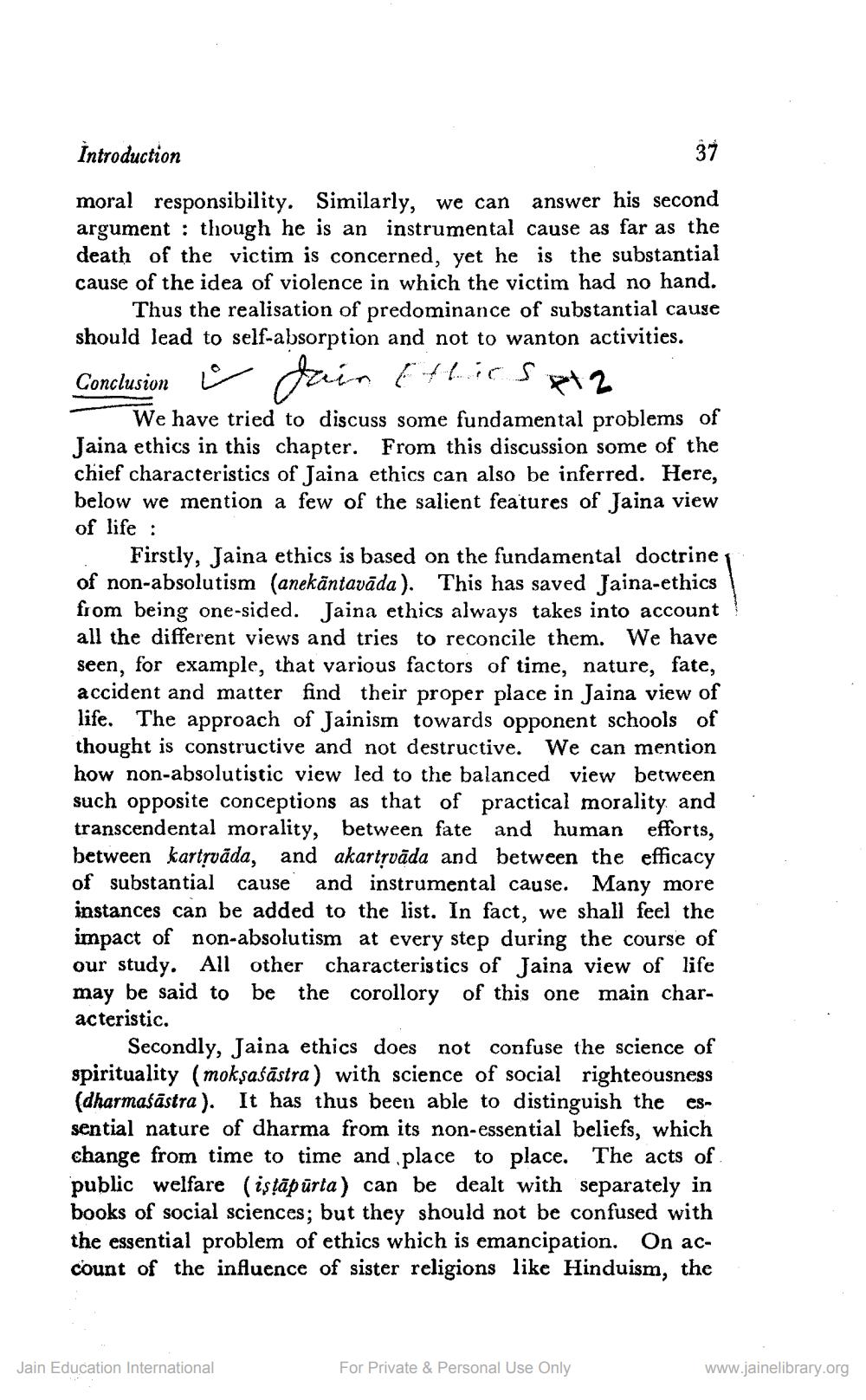________________
Introduction
37
moral responsibility. Similarly, we can answer his second argument : though he is an instrumental cause as far as the death of the victim is concerned, yet he is the substantial cause of the idea of violence in which the victim had no hand.
Thus the realisation of predominance of substantial cause should lead to self-absorption and not to wanton activities. Conclusion ☺
rain Ethic set2 We have tried to discuss some fundamental problems of Jaina ethics in this chapter. From this discussion some of the chief characteristics of Jaina ethics can also be inferred. Here, below we mention a few of the salient features of Jaina view of life :
Firstly, Jaina ethics is based on the fundamental doctrine of non-absolutism (anekāntavāda). This has saved Jaina-ethics from being one-sided. Jaina ethics always takes into account all the different views and tries to reconcile them. We have seen, for example, that various factors of time, nature, fate, accident and matter find their proper place in Jaina view of life. The approach of Jainism towards opponent schools of thought is constructive and not destructive. We can mention how non-absolutistic view led to the balanced view between such opposite conceptions as that of practical morality and transcendental morality, between fate and human efforts, between kartrvāda, and akartyvāda and between the efficacy of substantial cause and instrumental cause. Many more instances can be added to the list. In fact, we shall feel the impact of non-absolutism at every step during the course of our study. All other characteristics of Jaina view of life may be said to be the corollory of this one main characteristic.
Secondly, Jaina ethics does not confuse the science of spirituality (mokşaśāstra) with science of social righteousness (dharmaśāstra). It has thus been able to distinguish the essential nature of dharma from its non-essential beliefs, which change from time to time and place to place. The acts of public welfare (istāpūrta) can be dealt with separately in books of social sciences; but they should not be confused with the essential problem of ethics which is emancipation. On account of the influence of sister religions like Hinduism, the
Jain Education International
For Private & Personal Use Only
www.jainelibrary.org




